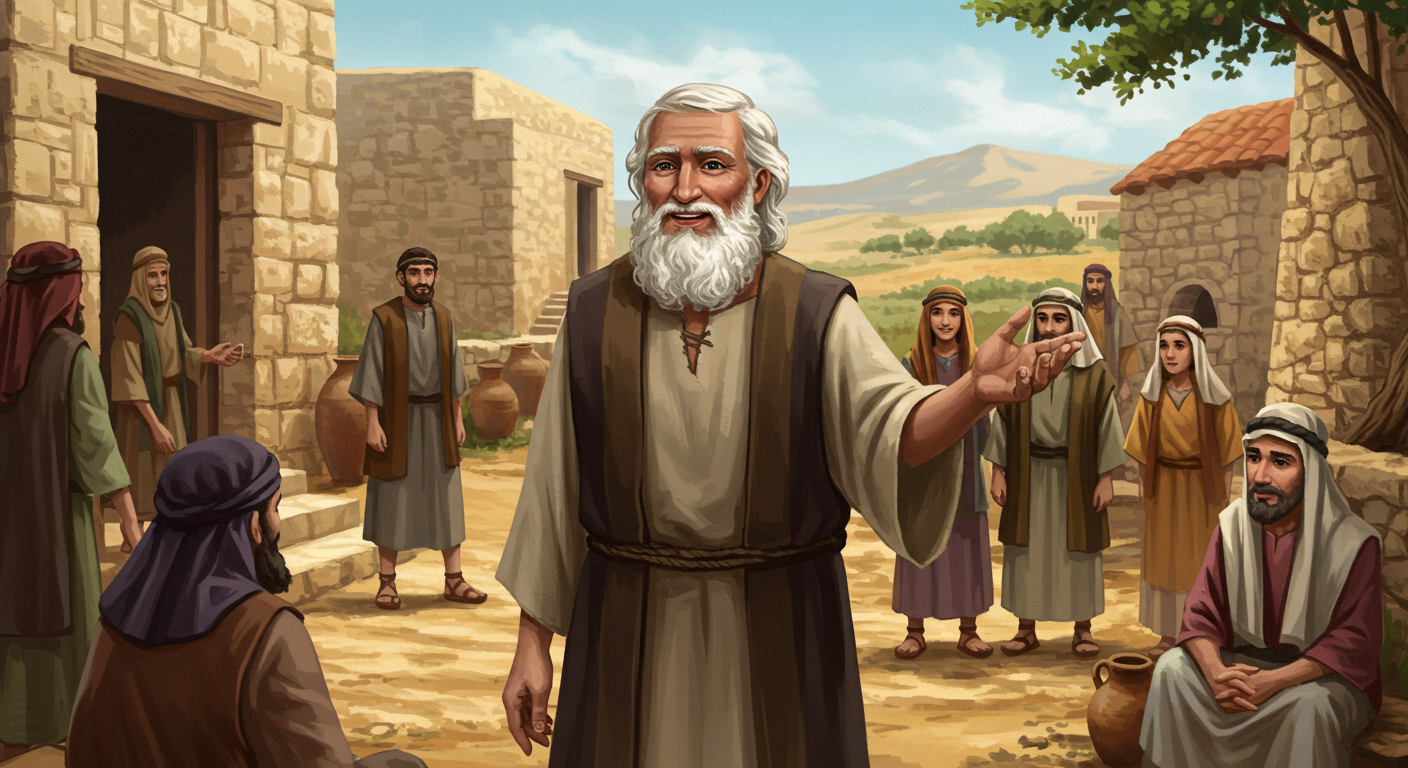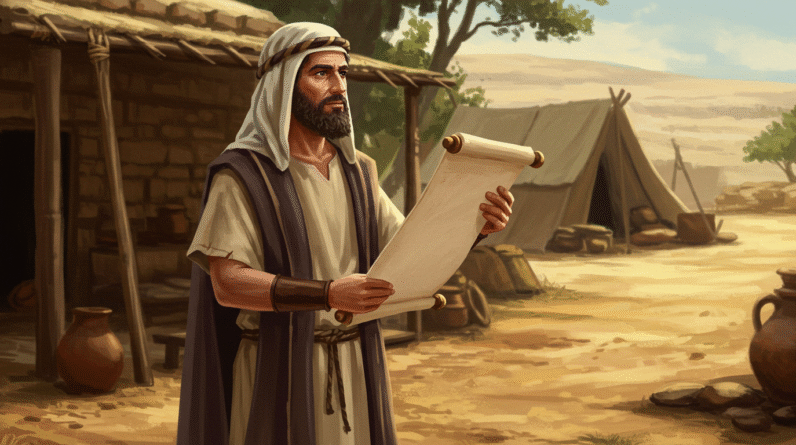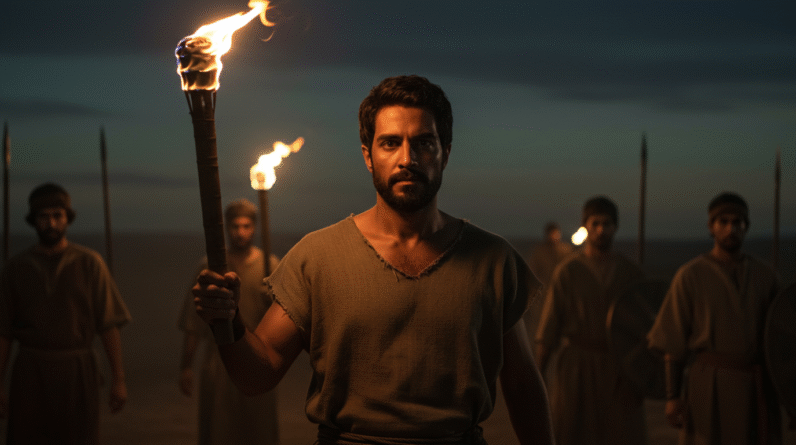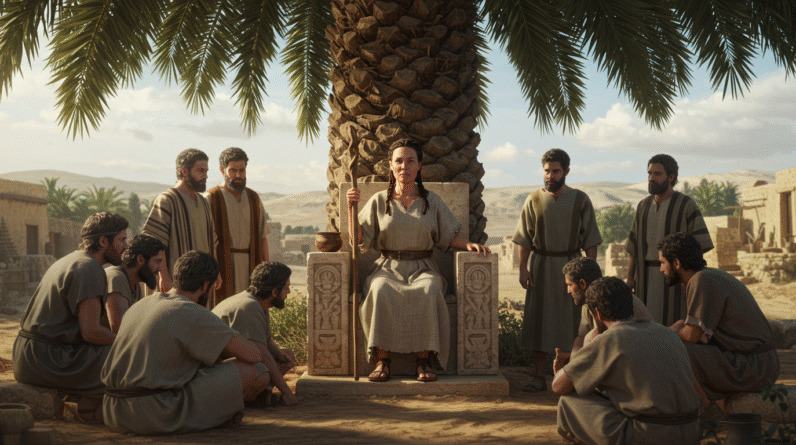Discover Tola’s profound yet understated leadership in the Old Testament, highlighting faith-driven stability and quiet resilience amid turmoil. A true hero of faith.
Tola: A Hero of Faith in the Old Testament

Introduction
Tola may not be the most recognized figure compared to other Judges and warriors in the Old Testament, but his contribution to Israel’s history is remarkable and profound. Starring in a brief but significant two-verse narrative, Tola’s leadership is encapsulated in Judges 10:1-2. As a judge, he emerged during a period of turmoil and transition for the Israelites. His story could easily be overlooked, but within those verses lies a narrative of faith, leadership, and the courage to guide a nation back to stability. His life encourages us to peer beyond the surface and discover the importance of his role as a hero of faith.
Early Life and Background
Tola hailed from the tribe of Issachar, one of the lesser tribes in terms of prominence in Israel’s narrative tapestry. Although the Bible provides scant details about his early life, we know from Judges 10:1 that he was the son of Puah and the grandson of Dodo. Tola’s background, rooted in a modest family context, might have shaped his leadership as one of humility and service. His rise from an ordinary environment to a judge over Israel speaks volumes of his character and God’s purpose in his life. At his core, Tola was a product of his times—a period marked by cyclical apostasy and repentance among the Israelites, setting the stage for his leadership’s necessity.
The Calling and Rise to Leadership
Tola’s calling unfolded during a crucial juncture, following Abimelek’s tumultuous rule. Unlike the daunting call of leaders like Gideon, Tola’s path to leadership was not paved with heavenly encounters or grandiose declarations. Instead, he was chosen amidst chaos, serving as a vessel for God’s peace. His rise was significant and aligned with God’s intention to bring tranquility after upheaval. The Biblical narrative succinctly introduces Tola without elaborate fanfare, which in itself highlights his humble acceptance of a divine mandate. He recognized when to step into leadership and embraced his role with resolve and quiet strength, steering the nation toward a necessary reprieve and order.
Key Events and Victories
Though the scriptures do not chronicle grand battles or vivid triumphs during Tola’s time, his period of leadership was marked by its victories. For twenty-three years, he ruled, bringing stability and peace to a land often besieged by strife. The absence of recorded battles in Judges 10:1-2 perhaps testifies to a leadership focused on preservation rather than warfare, an enduring act of faith that countered the nation’s inclination toward disobedience. Tola’s victory lay in the peace fostered during his tenure—an invisible yet powerful triumph against disorder, made possible through God’s provision and his steadfastness.
Their Leadership Style
Tola wielded leadership with an understated strength, characterized by wisdom and discernment. As a judge who did not rely on militaristic feats, his influence emerged through governance that prioritized stability over the pursuit of grandeur. Such an approach contrasted against more militant predecessors and successors, showcasing a different yet crucial facet of leadership. He demonstrated how steadfastness and resolve could be pivotal in uniting people, maintaining peace, and encouraging devotion to God. Tola’s straightforward yet powerful approach set forth a template of leadership rooted in the diligent observance of faith and communal harmony.
Challenges and Failures
While specific challenges during Tola’s time remain unnamed, his ability to shepherd a peace-laden and devoted Israel suggests underlying tests of faith and governance, ones he met with quiet strength. His time could have experienced social undercurrents threatening unity, yet he navigated them to maintain an era of peace. Such leadership might have necessitated overcoming internal dissent, and fostering unity despite potential divisions based on Israel’s historical precedent. Although specific failures aren’t chronicled, the broader cycle of Israel’s apostasy cautions against the inevitability of struggles during even the most peaceful leadership, and Tola’s prudent actions in response exemplify resilience and the strength to persevere.
The Legacy of Tola
Though Tola’s account may seem less dramatic, it encapsulates enduring lessons on leadership and legacy. He provided a model of stability-seeking, faith-led leadership, portraying the significance of peace and order in a nation’s spiritual and social fabric. Tola’s story, albeit brief, offered Israel a narrative of quiet resilience and divine-faithful stewardship, pulling them away from the edge of conflict toward resurrection in covenantal fidelity. His influence likely set an example that resonated beyond his death, paving the way for future leaders to embody this steadfast trust in divine providence as a linchpin of vibrant, spiritual life within Israel.
Life Lessons and Application
Reflecting on Tola’s life, modern readers can glean manifold lessons. Tola illustrates how quiet diligence, faith, and stability underpin extraordinary leadership. His stewardship models a leadership style in which the strength found in maintaining peace can be applied in communities today. In personal contexts, Tola’s faith-driven actions encourage individuals to pursue peace and trust faithfully in divine guidance through tribulations and unknowns. His story serves as a testament to the importance of humbly accepting roles tasked to us, understanding that every effort, however small it may seem, contributes to the broader tapestry of divine purpose.
Conclusion
Tola’s brief narrative offers an inspiring story of leadership that underscores the power of faith-driven stability. His legacy reminds us that enduring peace and spiritual steadfastness can arise through seemingly unassuming leaders devoted to God’s purpose. In contemplating Tola’s story, we are encouraged to embody his steadfast faith, striving for peace and godly leadership in our own lives. By reflecting on his contributions, we draw parallels to the transformative power of quiet yet resolute faith, impelling us to respond courageously in the spaces we occupy today.
Acknowledgment: All Bible verses referenced in this article were accessed via Bible Gateway (or Bible Hub).







